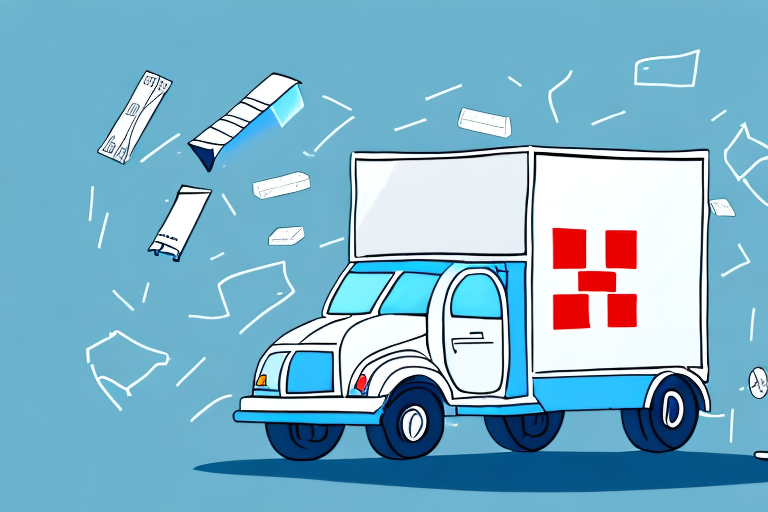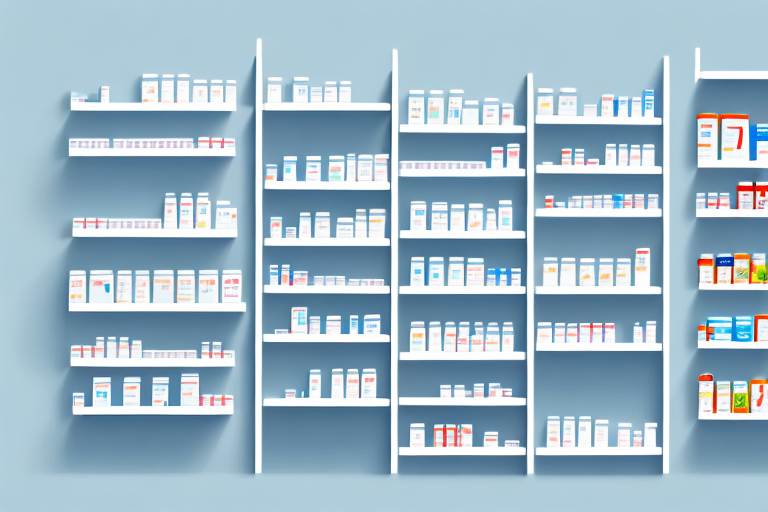Exploring the Benefits of Medicine Delivery Jobs
Medicine delivery jobs have experienced significant growth in recent years, driven by the increasing demand for accessible and convenient healthcare services. These roles offer numerous benefits, including flexible scheduling, job security, and the opportunity to make a positive impact on patients' lives. This guide delves into the advantages of pursuing a career in medicine delivery, the role of technology, pathways to entering the field, essential skills, and future trends shaping the industry.
Why Medicine Delivery Jobs Are in High Demand
Rising Demand for Accessible Healthcare
The surge in online pharmacies and home-based healthcare services has made medicine delivery an integral part of the healthcare ecosystem. According to a PwC report, the global pharmaceutical market is projected to reach over $1.5 trillion by 2023, with a significant portion attributed to online sales and delivery services.
Demographic Shifts
An aging population and the prevalence of chronic conditions have further amplified the need for reliable medicine delivery services. The Centers for Disease Control and Prevention reports that by 2030, the number of Americans aged 65 and older is expected to reach 74 million, heightening the demand for home-based healthcare solutions.
Employment Opportunities
Medicine delivery jobs offer opportunities for individuals without a medical background but who possess qualities such as reliability, organization, and effective communication skills. These roles often feature flexible work schedules and competitive pay, making them appealing to a diverse workforce.
The Role of Technology in Revolutionizing Medicine Delivery
Enhanced Delivery Efficiency
Technological advancements have transformed medicine delivery, making processes more efficient and reliable. Mobile applications and GPS systems enable drivers to navigate swiftly and track deliveries in real-time, reducing delivery times and increasing customer satisfaction.
Telemedicine Integration
The integration of telemedicine allows patients to receive medical consultations and prescriptions remotely. This eliminates the necessity for in-person doctor visits, particularly benefiting those in remote or underserved areas. According to a study in Nature, telehealth services saw a 154% increase in usage during the COVID-19 pandemic, underscoring their importance.
Environmental Sustainability
Technology also promotes environmentally friendly practices within medicine delivery. The adoption of electric vehicles and bicycles reduces carbon emissions, contributing to sustainable transportation solutions. This not only benefits the environment but also helps delivery companies lower operational costs.
How to Get Started in a Medicine Delivery Career
Basic Requirements
Entering the field typically requires obtaining a valid driver's license and maintaining a clean driving record. Many employers also mandate background checks and drug screenings to ensure the safety and reliability of their drivers.
Educational and Training Opportunities
While a high school diploma or equivalent is often sufficient, additional education or training in healthcare, logistics, or customer service can enhance job prospects. Courses in these areas can provide valuable skills that are highly regarded by employers.
Job Search Strategies
Prospective drivers can explore job opportunities through various channels, including online job boards, company websites, and staffing agencies. Networking with industry professionals and attending job fairs can also uncover potential openings and provide insights into company cultures.
- Search on platforms like Indeed or LinkedIn Jobs.
- Visit company career pages such as Walgreens or Pfizer.
- Utilize staffing agencies specializing in healthcare logistics.
The Importance of Customer Service and Safety in Medicine Delivery Jobs
Customer Service Excellence
Medicine delivery drivers serve as the primary point of contact between healthcare providers and patients. Exceptional customer service skills, including patience, empathy, and clear communication, are essential for building trust and ensuring patient satisfaction.
Medication Knowledge
Drivers should have a basic understanding of the medications they deliver, including dosage instructions, potential side effects, and special handling requirements. This knowledge enables them to address patient inquiries confidently and provide accurate information.
Safety Protocols
Adhering to safety protocols is paramount in medicine delivery. This includes following traffic laws, using seatbelts, avoiding distracted driving, and maintaining vehicle cleanliness. During health crises like the COVID-19 pandemic, additional measures such as wearing masks and gloves are necessary to protect both drivers and patients.
Pros and Cons of Being a Medicine Delivery Driver
Advantages
- Flexible Scheduling: Many positions offer adaptable work hours, allowing drivers to balance personal and professional commitments.
- Job Security: The growing demand for medicine delivery services provides stable employment opportunities.
- Career Advancement: Drivers can advance to supervisory or logistical roles with experience and additional training.
- Positive Impact: Delivering essential medications contributes to improving patients’ health and well-being.
Disadvantages
- Physical Demands: The job may involve lifting heavy packages and long hours on the road.
- Exposure to Weather: Drivers are often exposed to varying weather conditions, which can be challenging.
- Safety Risks: There is a potential for encountering difficult customers or facing safety hazards while on the job.
- Inconsistent Income: Depending on the employer and hours worked, income can fluctuate.
The Future of Medicine Delivery Jobs: Trends and Predictions
Technological Innovations
The future of medicine delivery is closely tied to technological advancements. The use of drones for medication delivery is being explored, offering the potential to bypass traffic and deliver medicines directly to patients' doorsteps. While promising, regulatory and safety concerns must be addressed before widespread implementation.
Telehealth Expansion
The continued growth of telehealth services is expected to increase the reliance on medicine delivery drivers. As more patients opt for remote consultations, the need for efficient and reliable delivery systems will become even more critical.
Environmental Considerations
There is a growing emphasis on sustainability within the industry. Medicine delivery companies are increasingly adopting electric vehicles and eco-friendly practices to reduce their environmental footprint.
Labor Market Dynamics
Potential labor shortages and heightened competition among delivery providers may influence job markets. Companies may need to offer competitive wages and benefits to attract and retain qualified drivers.
Key Skills Needed for Success in a Medicine Delivery Role
Logistical Abilities
Effective route planning and time management are crucial for ensuring timely deliveries. Drivers must navigate efficiently to meet delivery schedules while optimizing fuel usage and minimizing delays.
Interpersonal Skills
Strong communication and customer service skills enable drivers to interact positively with patients and healthcare professionals, fostering trust and satisfaction.
Physical Fitness and Safety Awareness
Being physically fit helps in handling packages safely and enduring the demands of the job. Additionally, a keen awareness of safety practices is essential to prevent accidents and injuries.
Adaptability
The ability to adapt to changing circumstances, such as traffic conditions or last-minute delivery changes, is important for maintaining efficiency and service quality.
Balancing Work and Personal Life as a Medicine Delivery Driver
Setting Boundaries
Establishing clear work hours and taking regular breaks can help drivers maintain a healthy work-life balance. Prioritizing tasks and managing time effectively are key strategies.
Prioritizing Self-Care
Engaging in self-care activities such as exercise, hobbies, and spending time with loved ones can mitigate the stresses associated with the job and promote overall well-being.
Employer Support
Some companies offer wellness programs, flexible scheduling, and support services to help drivers achieve a better balance between their professional and personal lives.
The Impact of COVID-19 on the Medicine Delivery Industry
The COVID-19 pandemic significantly heightened the importance of medicine delivery services. Demand surged as patients sought to minimize in-person visits to healthcare facilities. Companies adapted by implementing stringent safety protocols, expanding delivery capacities, and leveraging technology to meet increased demand. However, the pandemic also introduced challenges such as supply chain disruptions and heightened risk for drivers, necessitating enhanced safety measures and support systems.
Success Stories from Real-Life Medicine Delivery Drivers
Hearing from experienced drivers can provide valuable insights into the rewards and challenges of the profession. For instance, Sarah, a medicine delivery driver with over 10 years of experience, has witnessed the industry's evolution firsthand. Starting as a part-time driver during college, Sarah transitioned to a full-time role, building strong relationships with her patients and advancing to a management position overseeing a team of drivers. Her story highlights the potential for personal fulfillment and career growth within the field.
Conclusion
Medicine delivery jobs offer a blend of flexibility, job security, and the opportunity to make a meaningful impact on individuals' health and well-being. As the healthcare industry continues to evolve with technological advancements and demographic shifts, the demand for skilled medicine delivery professionals is expected to grow. For those seeking a rewarding career in the healthcare sector, medicine delivery presents an excellent opportunity to contribute to essential services while enjoying diverse benefits and career prospects.






















